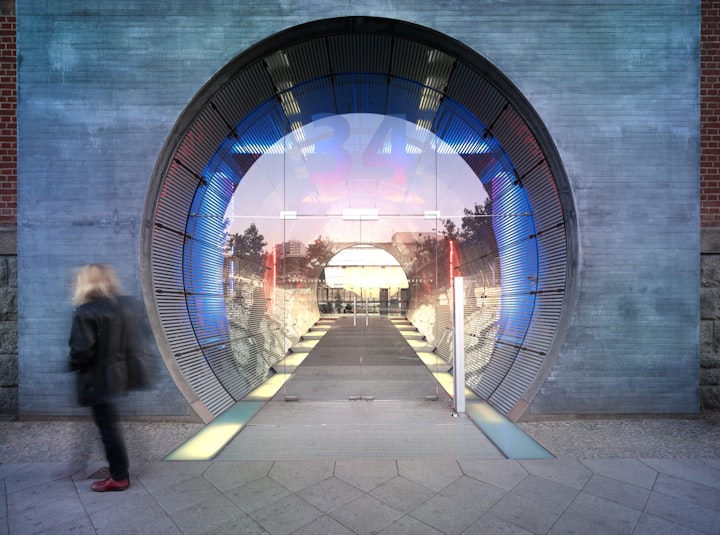Forget The Great Resignation, I Called It Years Ago
The pandemic just gave us a clear view
The day I saw the great corporate lie happened way before the pandemic. But I do remember the moment when it all became clear.
It was January 2015 and I trudged up a hill towards home in North London, exhausted.
The sun had long since set, I didn't even notice it happen. It was 9pm and the streets had grown dark and unwelcoming. My overcoat and thin suit offered little protection from the penetrating cold of winter.
I'd completed a 10-hour workday and was heading home to eat, sleep and do it all over again tomorrow. This was the routine I had been living for a few months as a systems analyst in a private bank. Work was punishing.
I passed The King's Head, a rough and ready boozer from a bygone age where no one had ever put the word "gastro" in front of anything unless it was "enteritis".
I saw the punters illuminated within, laughing, joking, being raucous, framed by a giant ornate window, making the scene look like a renaissance masterpiece.
I spotted a man I know. He was standing by the bar, talking to someone, his half-drunk pint placed patiently next to him.
I know this man because he drank with my father; one of the many he'd acquainted himself with by default, loose friendships forged by mutual alcohol dependency. Drink in the same pubs for years and you will meet the people with the same habits and woes.
I knew this man's background. He was unemployed, by choice. It was his lifestyle, he would never work, he was devoid of ambition, he would, like many of my father's acquaintances, drink until he could drink no more, then one day, he would lay down and die. That was his plan and he was sticking to it.
I, on the other hand, was working in Mayfair, the most exclusive area of London, for a prestigious private bank made up of Old Etonians and Oxbridge alumnus.
I looked at that man, leaning on the bar, deep in conversation, as if he hadn't a care in the world. He appeared free and unburdened. Then looked at myself in my suit, farcically standing on the cold, dark street, alone, overworked and miserable.
In that moment, all I could think was "Who's the real winner here?"
I was meant to be the successful one. Not a raging success, but respectably occupied; I had a degree, a "prestigious" job, I wore a nice suit and rode the tube to work with fellow professionals.
I thought about what this man's day must have been like, then compared it to my own. The juxtaposition between him and I was extreme, almost ludicrous.
I would have laughed if I didn't feel the joke was on me.
Society judges those who live on benefits terribly. But moral quandaries about contribution aside, how was this man meant to be worse off than I? How was this man meant to be a loser and I was meant to be a winner?
I hated that job. I was stressed out and pushed to breaking point, a point that eventually came and I ended up in the hospital.
Was this man miserable too? Perhaps. He likely felt trapped by indecision, ruled by fear of failure, caught in his ever-decreasing comfort zone, we've all been there. I've seen friends virtually disappear as they first drop out of employment and then drop out of life. How we do anything is how we do everything.
But I asked myself, was I any happier? At that point I was single, in a job I resented, I had no free time, and I too was terrified of failure (it doesn't just magically disappear when you get a job).
The only difference between him and I was that society would judge me favourably. For some reason.
So the question was this: Whose standards was I living up to?
I'd been playing the corporate game for years, but I wasn't rich and I wasn't happy. So what was it giving me? A flimsy status to grasp onto as if I was desperately hugging the mast of a ship in a hectic storm of unhappiness. I had listened to everyone apart from myself.
The corporate promise was a corporate lie. I saw it all laid out before me. The promise of utopia at the top of some hierarchy didn't exist. Life isn't a destination, it's a play, a dance, every moment counts.
That evening, I stood there dejected, looking at that man, and I had an epiphany: I had been conned.
I had conned myself.
I just had a little more money and worked somewhere a little more prestigious, things would come together. I bought into the myth of corporate salvation because it was easy.
Ask no questions, be told no lies.
That evening I started asking questions. In that one transformational moment, I began to ask all the questions, and all I got back were lies.
About the Creator
Jamie Jackson
Between two skies and towards the night.







Comments
There are no comments for this story
Be the first to respond and start the conversation.